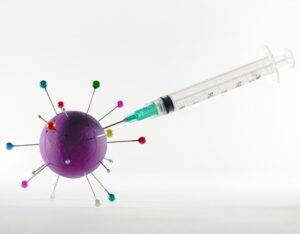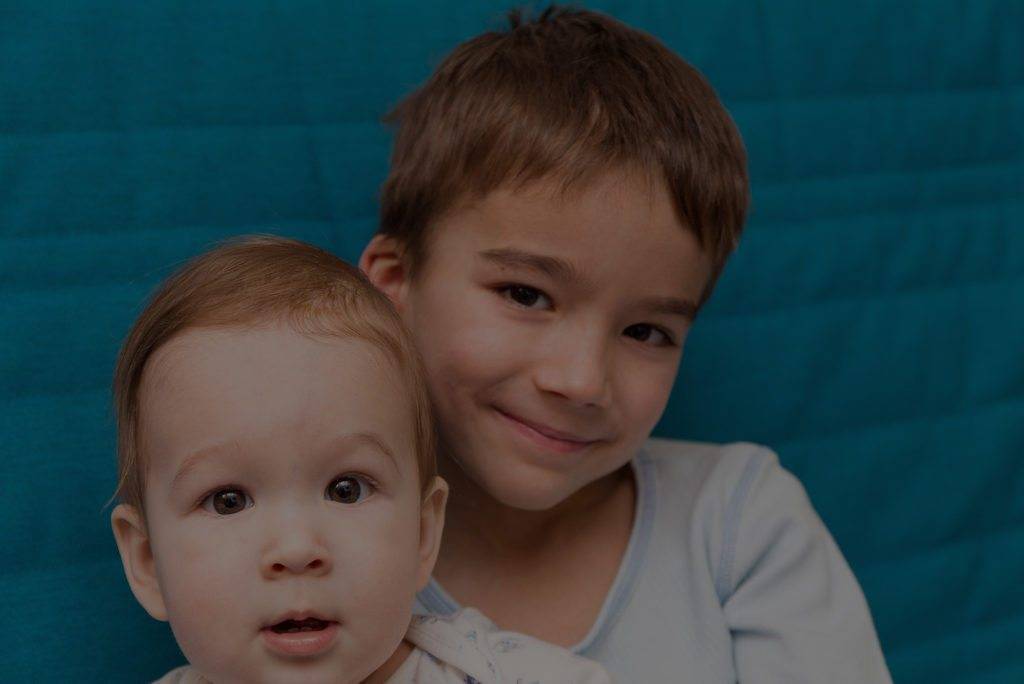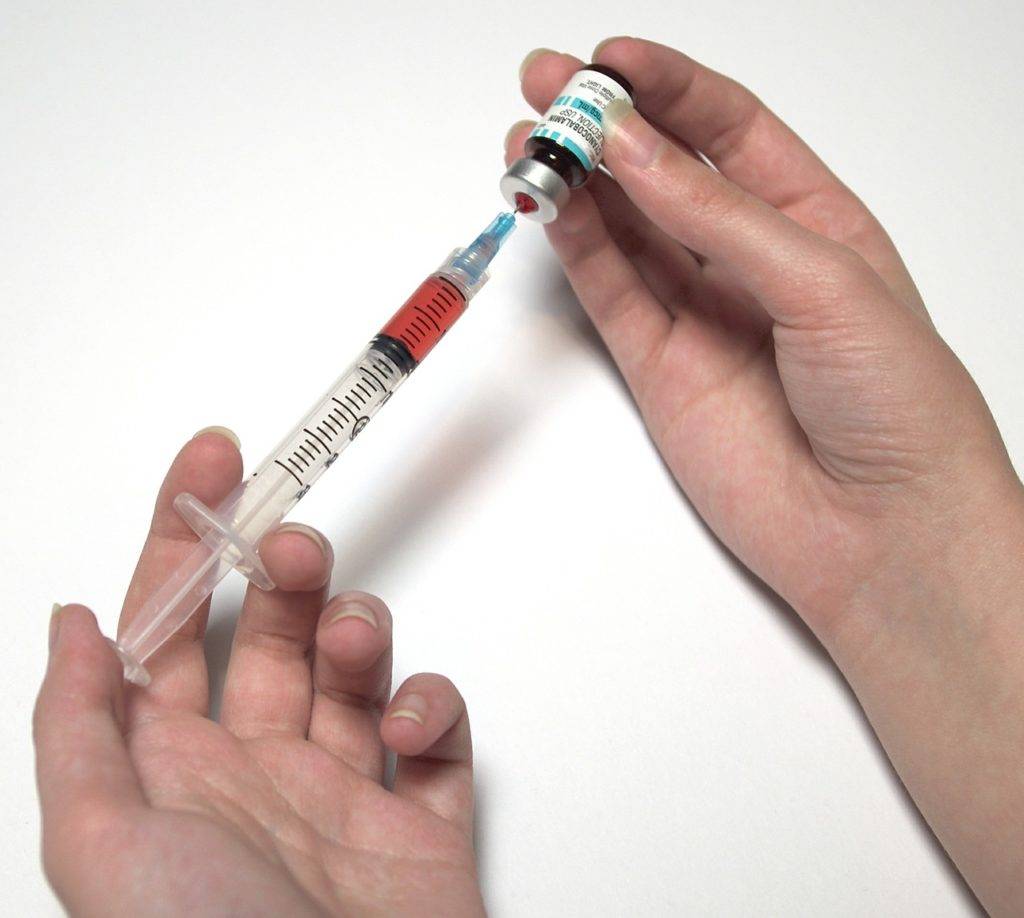Vaccinations have transformed public health, and one of the most notable achievements is the ability to prevent chickenpox in children. Chickenpox, or varicella, was once a common illness that nearly every child faced. Thanks to the development and widespread use of the chickenpox vaccine, parents can now avoid putting their children at risk of this disease and its possible complications.
This article will explore why vaccinating your child against chickenpox is one of the best decisions. From reducing the risk of complications to preventing missed school days, the chickenpox vaccine offers numerous benefits that make it well worth considering for your child’s health and safety.
1. Protect Your Child from Severe Chickenpox Symptoms
Chickenpox seems like a typical childhood illness, but the symptoms cause extreme discomfort and are potentially dangerous. While many cases are mild, chickenpox can still cause high fever, a body-wide rash of itchy blisters, fatigue, and body aches. In some cases, the symptoms are intense and last up to 10 days, leaving your child feeling miserable and exhausted. The chickenpox vaccine effectively prevents your child from experiencing the worst symptoms.
When a vaccinated child contracts the illness, the symptoms are usually mild and short-lived. The vaccine reduces the severity, making it as mild as a few spots with minimal fever rather than the extensive rash and discomfort that unvaccinated children endure. By vaccinating, you’re helping to keep your child comfortable, happy, and healthy.
2. Avoid the Risk of Potentially Dangerous Complications
Chickenpox leads to more than just a few itchy days at home. In some cases, it can result in serious complications that may even require hospitalization. While complications are rare, they are likely to occur in unvaccinated individuals and include:
- Pneumonia: Infection in the lungs that makes breathing difficult and may be severe enough to require hospitalization.
- Encephalitis: Brain inflammation that causes confusion, headaches, and seizures. In rare cases, it can lead to permanent brain damage.
- Bacterial Infections of the Skin: Due to the constant itching, children scratch at their chickenpox sores, which leads to open wounds and secondary bacterial infections. These infections need antibiotic treatment and result in scarring.
While not every child will experience complications, they are common in unvaccinated individuals, the young, and those with weakened immune systems. The chickenpox vaccine prevents these complications by preventing infection or making chickenpox mild and short-lived. This means fewer worries and peace of mind for parents, knowing they’ve reduced their child’s risk of these serious health issues.
3. Minimize the Risk of Rare, Serious Conditions Like Reye’s Syndrome
Reye’s syndrome is a rare but serious condition that affects children recovering from viral infections like chickenpox or the flu. It leads to swelling in the liver and brain, causing confusion, seizures, and even life-threatening symptoms. Reye’s syndrome is likely to develop if a child with chickenpox is given aspirin, a common pain reliever. The vaccine helps prevent chickenpox, reduces the risk of this potentially severe illness, and removes worry about mistakenly giving a child aspirin during recovery.
4. Lower Risk of Shingles in Adulthood
Many parents are unaware that chickenpox infection in childhood can lead to shingles later in life. Shingles, also known as herpes zoster, occurs when the varicella-zoster virus (that causes chickenpox) reactivates. This happens years or decades after the initial chickenpox infection.
Shingles are painful, causing a blistering rash and nerve pain that persists long after the skin has healed. This nerve pain, known as postherpetic neuralgia, interferes with daily activities and quality of life. Although shingles are common in older adults, they affect individuals at any age.
The chickenpox vaccine reduces the risk of shingles later in life by preventing a primary infection in childhood. Studies have shown that individuals vaccinated against chickenpox are less likely to develop shingles because they carry less virus in their systems. By vaccinating your child now, you’re helping protect their future health and reducing the likelihood of painful shingles later in life.
5. Avoid Missed School Days and Work Absences for Parents
Chickenpox affects the child and also impacts the family. It causes children to miss school for up to a week or more, depending on the severity of their symptoms and how long their blisters take to heal. During this time, parents stay home from work to care for their children, which leads to financial stress and logistical challenges.
The chickenpox vaccine prevents these disruptions by reducing the likelihood of illness. Even in rare cases where vaccinated children contract the mild form, the illness is short-lived and mild enough that they won’t miss a day or two of school.
Parents benefit by avoiding missed workdays and reducing stress by balancing work and caregiving responsibilities. For families with multiple children, vaccination also means that chickenpox is less likely to spread among siblings, further reducing the chances of a prolonged period of illness and missed school.
6. Protect Vulnerable Family Members and the Community

Vaccinating your child against chickenpox is more than a personal health choice; it’s a decision that benefits the wider community. While chickenpox is a manageable illness for many children, it is life-threatening for others. These vulnerable groups are at higher risk of complications if they contract the disease.
Vaccinating your child creates “herd immunity,” a form of community protection when enough people are immunized against a disease. Chickenpox is highly contagious, and unvaccinated children can easily spread the virus to others. This is especially concerning when it comes to vulnerable populations, including:
- Newborns and infants who are too young to receive the vaccine.
- Pregnant women, particularly those who have never had chickenpox, as the infection can lead to serious complications for both the mother and unborn baby.
- People with compromised immune systems, such as those undergoing cancer treatment or living with chronic illnesses, are susceptible to severe cases.
By vaccinating your child, you’re helping to protect these individuals by reducing the chances of an outbreak. When enough people in a community are vaccinated, it creates what’s known as “herd immunity.” Herd immunity means the virus has fewer opportunities to spread, protecting those who can’t be vaccinated. In choosing vaccination, you’re keeping your child safe and contributing to a healthier, safer community for everyone.
7. Chickenpox Vaccine: Minimal Side Effects, Major Benefits
The chickenpox vaccine is well-researched and highly effective with minimal side effects. It is typically administered in two doses: the first at 12–15 months and the second at 4-6 years old. These doses can be combined with other routine immunizations. This means you won’t need extra visits to the doctor.
Most children experience only minor side effects, such as a mild fever, slight redness, or tenderness at the injection site. In rare cases, some children may develop a mild rash with a few spots, far less intense than an actual chickenpox infection. Severe side effects are extremely uncommon, making the vaccine safe for most children.
By getting the vaccine, you are confident that your child has a strong layer of protection without the discomfort or inconvenience of severe reactions. Compared to the risk of full-blown chickenpox, the minor side effects of the chickenpox vaccine are a small price to pay for peace of mind and long-term protection.
8. Meet School and Daycare Immunization Requirements
Many states and schools require children to be vaccinated against chickenpox before they attend classes. These requirements ensure children are protected from contagious diseases and prevent school outbreaks. Your child’s health is protected while complying with school and daycare entry requirements.
Meeting these immunization requirements is essential for keeping classrooms safe and preventing the spread of infectious diseases. Without the vaccine, children may be at risk of being excluded from school during an outbreak, which is a stressful and disruptive experience for families. Ensuring your child is vaccinated means they won’t face any obstacles to school attendance due to immunization policies.
9. Reduce Healthcare Costs and Avoid Expensive Treatments
Contracting chickenpox involves costs associated with doctor visits, over-the-counter treatments, and potentially prescription medications for complications. If complications arise, hospitalizations, additional tests, and treatments add to the expense. The vaccine is a cost-effective preventive measure, sparing families the financial impact of managing a contagious illness like chickenpox. Additionally, most health insurance plans cover the cost of the vaccine, making it affordable or free for many families.
10. Foster Healthier Habits and Immunity Awareness in Children
Children learn about the importance of vaccinations from a young age; they develop a greater understanding and respect for preventive healthcare as they grow up. Vaccinating against chickenpox and other childhood diseases sets a foundation for lifelong awareness of immunity and public health. Kids learn that vaccines protect themselves but also friends, family, and community members. This early education can help foster habits that promote personal health and social responsibility.
FAQs About the Chickenpox Vaccine
Is the Chickenpox Vaccine Safe?
The chickenpox vaccine has been extensively studied and is safe and effective. Like all vaccines, it undergoes rigorous testing and monitoring to ensure that it meets high safety standards. Most children experience mild side effects, such as temporary redness or soreness at the injection site. Serious adverse reactions are rare, and the vaccine is considered safe for children.
How Does the Chickenpox Vaccine Work?
The chickenpox vaccine is made from a weakened version of the varicella virus, which stimulates the immune system to produce antibodies. These antibodies prepare the body to fight off the virus if it is ever exposed, providing immunity without causing the illness itself.
How Effective Is the Chickenpox Vaccine?
The chickenpox vaccine is highly effective, with most children experiencing full immunity after the two recommended doses. Even in the rare cases where vaccinated individuals contract chickenpox, the symptoms are significantly milder, and recovery is faster than in unvaccinated cases. The vaccine’s effectiveness ensures that your child receives high protection against a disease that could be disruptive and uncomfortable.
Can the Chickenpox Vaccine Cause Chickenpox?
While the vaccine is highly effective, no vaccine is 100% guaranteed. A small percentage of vaccinated children may contract chickenpox if exposed, but their symptoms are usually mild. Vaccinated individuals who contract chickenpox generally experience fewer spots, less severe itching, and shorter recovery times than those who are unvaccinated.
What Should I Do If My Child Has an Allergic Reaction to the Vaccine?
Allergic reactions to the chickenpox vaccine are rare. Consult your healthcare provider if your child has a history of allergies to vaccine components or has had adverse reactions to a vaccine. They assess your child’s health history and guide the best options for vaccination.
Where Can I Learn More About the Benefits of Childhood Vaccination?
If you’re seeking additional information about the chickenpox vaccine and other immunizations for children, consult trusted sources. Websites like Omegapediatrics offer detailed guides on pediatric immunizations, including up-to-date information on vaccine schedules, benefits, and what to expect from each immunization.
Why the Chickenpox Vaccine is a Wise Choice
The chickenpox vaccine is a safe, effective, and smart choice for protecting your child against a disease that, while once common, is now preventable. The benefits of vaccination are clear. The vaccine keeps your child healthy and is crucial to the community’s health protection.
Vaccinating your child against chickenpox is a proactive step that provides protection not only for your child but also for those around them. The vaccine not only shields your child from an uncomfortable illness but also contributes to the greater good by protecting vulnerable individuals in the community.
The chickenpox vaccine offers substantial benefits that outweigh any minor side effects. In an age where medical advancements make it possible to prevent previously common diseases, taking advantage of vaccines is a crucial aspect of responsible, informed parenting. By choosing to vaccinate, you’re giving your child the gift of lifelong protection against a painful and disruptive disease. Vaccination is a proactive step parents can take to safeguard their child’s health, well-being, and future.
Choosing to vaccinate means prioritizing your child’s health, comfort, and ability to stay active and engaged in their daily life. For more information about vaccination options and pediatric health, consult your pediatrician or visit trusted resources like Omegapediatrics to make informed, confident decisions about your child’s health.







